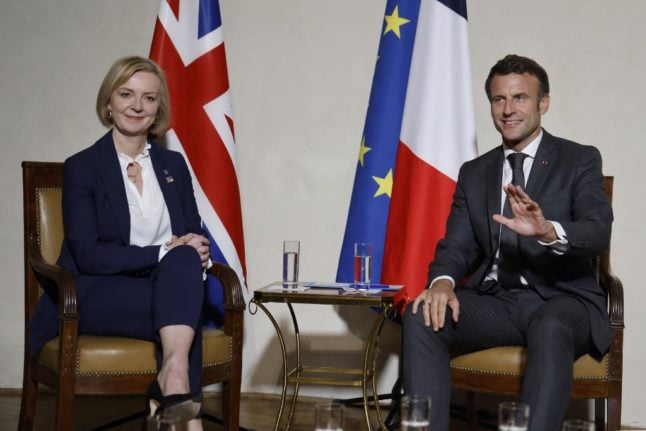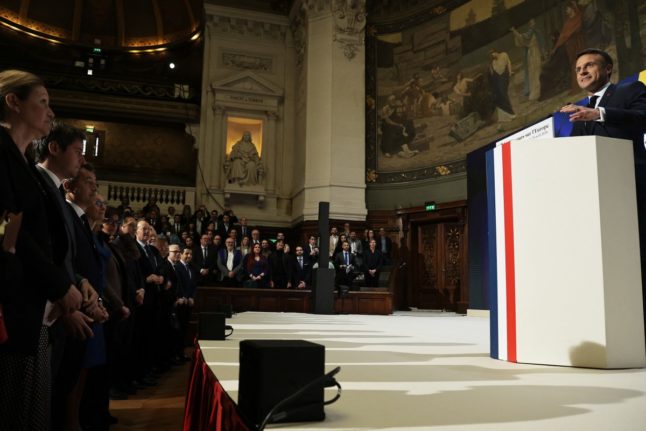Truss met Macron for a bilateral meeting on the sidelines of the president’s European Political Community meeting in Prague, aimed at bringing the continent together in the face of Russian aggression.
The two leaders afterwards pledged “ambitious” measures to tackle illegal migration against a background of record numbers of people making the dangerous journey across the Channel by boat from northern France.
Truss had given her “jury’s out” answer during her campaign to succeed Boris Johnson as Conservative party leader, delighting the Eurosceptic Tory faithful.
But it raised eyebrows as she was foreign minister at the time and supposedly in charge of diplomatic relations with Britain’s neighbour.
She told UK broadcasters before Thursday’s meeting she had worked “very, very closely” with the president and the French government in Paris.
“We’re both very clear the foe is (Russian President) Vladimir Putin, who has through his appalling war in Ukraine threatened freedom and democracy in Europe and pushed up energy prices which we’re now all having to deal with,” she added.
Asked directly if she considered him a friend, Truss replied: “He is a friend.”
In a statement after Thursday’s meeting, the two leaders promised to come up with solutions to deal with migrant crossings and to hold the next UK-France Summit in 2023.
They agreed “to deepen cooperation on illegal migration within the bounds of international law, to tackle criminal groups trafficking people across Europe, ending in dangerous journeys across the Channel.
“Interior Ministers should conclude an ambitious package of measures this autumn,” it added.
Macron often had prickly relations with Truss’s predecessor Boris Johnson, who spearheaded the successful campaign to take Britain out of the European Union.
But Johnson, who joked in Franglais that Macron was “un très bon buddy” (a very good friend), called Anglo-French relations “of huge importance”.
The two nations are close NATO allies and UN Security Council members.
Macron at the time played down Truss’s remarks, saying he would not hesitate for a “second” in affirming Britain as an ally.



 Please whitelist us to continue reading.
Please whitelist us to continue reading.
Member comments